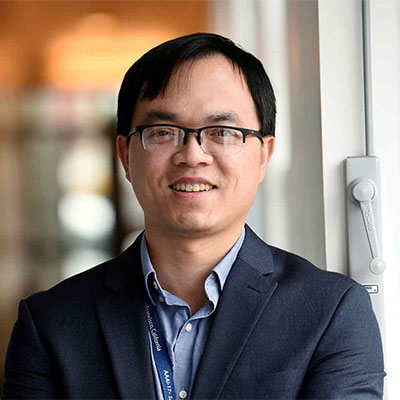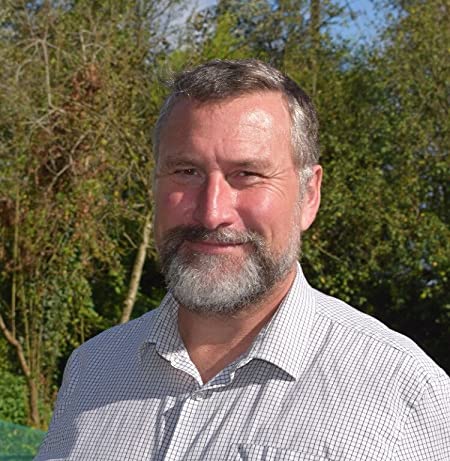ICANN 2022 will feature the following keynote speakers:
- Prof. The Anh Han (Teesside University, UK)
- Prof. Věra Kůrková (Institute of Computer Science of the Czech Academy of Sciences)
- Prof. Lyndon Smith (University of the West of England, UK)
- Prof. Agnieszka Wykowska (Istituto Italiano di Tecnologia Genova, Italy)
The Anh Han
Teesside University, UK

Title: Emergent Behaviours in Multi-Agent Systems with Evolutionary Game Theory
Biography: The Anh Han is a professor of Computer Science and Lead of the Center for Digital Innovation at School of Computing, Engineering and Digital Technologies, Teesside University. His research spreads several topics in AI and interdisciplinary research, including evolutionary game theory, behavioral and cognitive modelling, agent-based simulations, knowledge representation and reasoning, and AI safety. He has published over 100 peer-reviewed articles in top-tier Computer Science conferences (AAAI, IJCAI, AAMAS) and high-ranking scientific journals. He regularly serves in the programme committees of most of top-tier AI conferences (e.g., IJCAI, AAAI, AAMAS) and is on the Editorial Boards of several international journals (e.g., Adaptive Behavior, PLOS One, Frontiers in AI and Robotics, Entropy). He was awarded prestigious research fellowships and grants as Principal Investigator from the Future of Life Institute, Leverhulme Trust Foundation, and FWO Belgium.
Věra Kůrková
Institute of Computer Science of the Czech Academy of Sciences

Title: Some implications of high-dimensional geometry for neurocomputing
Abstract: Computational difficulties of multidimensional tasks, called the “curse of dimensionality’’, have long been well-known. In particular, the numbers of parameters needed for computation of certain types of tasks grow exponentially with increasing dimension. On the other hand, almost deterministic behaviour of some randomized models and algorithms depending on large numbers of variables can be attributed to the “blessing of dimensionality’’. These phenomena can be explained by rather counter-intuitive properties of geometry of high-dimensional spaces. They imply concentration of values of sufficiently smooth functions of many variables around their mean values and possibilities of reduction of dimensionality of data by random projections. In the lecture, it will be shown how properties of high-dimensional geometry can be employed to obtain some insights into suitability of various types of neural networks for classification of large data sets. Probabilistic bounds on network complexity will be derived using concentration properties of approximation errors based on Azuma and McDiarmid inequlities. Consequences for choice of network architectures will be analyzed in terms of growth functions and VC dimensions of sets of network input-output functions. General results will be illustrated by examples of deep perceptron networks with various piecewise polynomial activation functions (ReLU, RePU). Probabilistic results will be complemented by some concrete constructions. Connections with the central paradox of coding theory and pseudo-noise sequences will be discussed.
Biography: Věra Kůrková is a senior scientist at the Department of Machine Learning, Institute of Computer Science of the Czech Academy of Sciences. She received PhD. in mathematics from the Charles University, Prague, and DrSc. (Prof.) in theoretical computer science from the Czech Academy of Sciences. She has been affiliated with the Institute of Computer Science since 1990, in 2002-2008 she served as the Head of the Department of Theoretical Computer Science. In 2010, she received from the Czech Academy of Sciences the Bolzano Medal for her contribution to mathematical sciences.
Her main research interests are mathematical theory of neurocomputing and machine learning. Her work includes analysis of capabilities and limitations of shallow and deep networks, dependence of network complexity on increasing dimensionality of computational tasks, connections between theory of inverse problems and generalization in machine learning, and nonlinear approximation theory.
Since 2008, she has been a member of the Board of the European Neural Network Society (ENNS), in 2017-2019 she served as its president. She is a member of the editorial boards of the journals Neural Networks, Neural Processing Letters, and Applied and Computational Harmonic Analysis, and was a guest editor of special issues of Neural Networks and Neurocomputing. She was involved in organization of many conferences, in particular in ICANN 2008 and ICANN 2001 in the role of the general chair.
Lyndon Smith
University of the West of England, UK

Title: Our part in the intelligent machine vision revolution
Abstract: The aim of the UWE Centre for Machine Vision, since it was set up in 1999, has been to demonstrate the effective combination innovative machine vision and advanced machine learning techniques, for providing significant benefits in challenging tasks. Examples of the latter include a wide range of applications in the security, medical, and agri-tech sectors; where substantial scene variations or changes in background lighting can severely limit the utility of conventional machine vision approaches. Our response to this challenge has been to realize devices and systems that gather richer data (i.e. 3D + 2D) and learn from experience. This is achieved by exploiting recent developments in 3D vision (e.g. Kinect) and AI (e.g. Deep Learning), in combination with the affordable high-performance computing that has recently become available. We have found that combining a 3D +2D data set with Deep Learning enables systems to be developed that are significantly more reliable and robust than is the case when employing only 2D data. This has enabled implementation of vision systems capable of automatically performing tasks that have previously been considered intractable. Examples of the latter include security applications such as high-reliability face recognition (in changing environments), and effective implementation of a wide range of agri-tech tasks outdoors in the field, rather than in the laboratory. The result has been the emergence of systems for enabling effective performance of traditionally difficult or laborious tasks, which have previously been considered too challenging for automation, thereby providing access to significant associated productivity and/or economic benefits.
Biography: Lyndon Smith is Professor in Computer Simulation and Machine Vision, in the Centre for Machine Vision, UWE Bristol. He has expertise based on over twenty-eight years of experience of research in the field of Computer Simulation and Machine Vision, with particular emphasis on 3D analysis of complex surface textures and object morphologies. A strong area of on-going research is the development of deep learning for vision based solutions for complex problems, the automation of which had been previously considered intractable. This is leading to strong industrial impact in a number of sectors.”
Agnieszka Wykowska
Istituto Italiano di Tecnologia Genova, Italy

Title: Using robots to understand human cognition
Abstract: As robots are believed to soon populate human environments, they have received enthusiastic support in the scientific community. Most research aims at designing robots for assisting humans in daily lives, healthcare, or elderly care. However, there is also a less explored way of using robots – robots as tools to understand human cognition. We take this approach in our lab in examining human socio-cognitive mechanisms in interaction. In this talk, I will present the work from our lab where we have examined whether and how social signals, such as gaze contact, initiated by a humanoid robot, influence attentional orienting, social decision making, or cognitive control. Our results showed, both at the behavioral and neural level, that social gaze modulates attention, efficiency in decision making, as well as adaptation to cognitive conflict. In addition, I will present our research related to the question of whether and under what conditions humans treat robots as social partners and intentional agents. I will discuss these results in a broader context of developing artificial cognitive architectures and robot design.
Biography: Professor Agnieszka Wykowska leads the unit “Social Cognition in Human-Robot Interaction” at the Italian Institute of Technology (Genoa, Italy). Prof. Wykowska’s background is cognitive neuroscience with a PhD in psychology (2008) from the Ludwig Maximilian University Munich (Germany). In 2016 she was awarded the ERC Starting grant “InStance: Intentional Stance for Social Attunement”, which addresses the question of attribution of intentionality to robots. She is Editor-in-Chief of International Journal of Social Robotics. Since July 2022 she serves the role of President of the European Society for Cognitive and Affective Neuroscience (ESCAN). She is also core board member of Association of ERC Grantees and a delegate to the European Research Area (ERA) Forum – an EU expert group shaping EU science policies. At ERA Forum, she represents Stakeholder Group 4 “Individual researchers and innovators”. She is also a member of ELLIS (European Lab for Learning and Intelligent Systems). The research foci of Prof. Wykowska are truly interdisciplinary, bridging psychology, cognitive neuroscience, robotics and healthcare. Specifically, she combines cognitive neuroscience methods with human-robot interaction to understand the human brain mechanisms in interaction with other humans and with robots. Part of her research is also dedicated to application of social robotics to healthcare: her team develops robot-assisted training protocols to help children diagnosed with autism-spectrum disorder in improving social skills.
